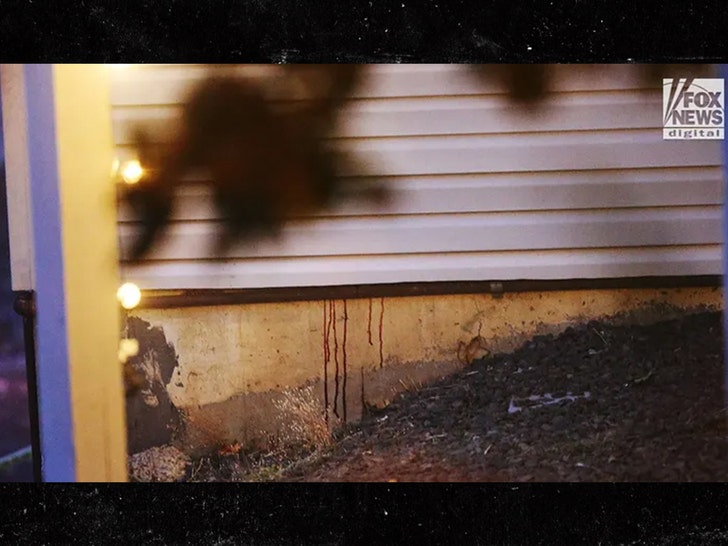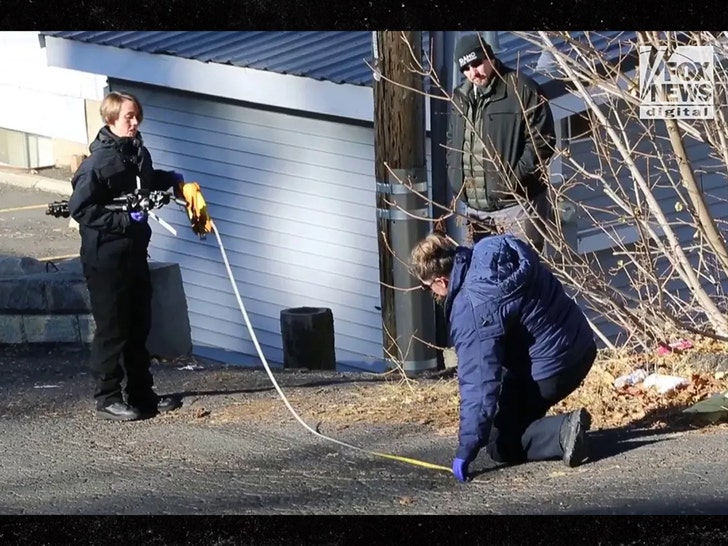Why Idaho Roommate Delayed 911 Call: The Untold Story
Picture this: A chilling story that has left everyone asking the same question—why did the Idaho roommate delay calling 911? It's a tale that unfolds like a mystery novel, filled with twists, turns, and unanswered questions. The case of the missing Idaho students has gripped the nation, but one aspect that stands out is the delay in reporting the incident. Let’s dive deep into the details and uncover the reasons behind this shocking delay.
So, here we are, talking about one of the most talked-about cases of 2023. The disappearance of three Idaho students has sent shockwaves across the country. But wait, there’s more to the story than meets the eye. The roommate, who was the last person to see them alive, waited hours before finally dialing 911. Now, we’re left wondering—why?
This isn’t just another crime story; it’s a reflection of human behavior under extreme pressure. Understanding why the roommate delayed the call can help us learn a lot about how people react in emergencies. So, buckle up, because we’re about to explore every angle of this complex situation.
Who Were the Idaho Students?
Before we dive into the reasons behind the delayed 911 call, let’s take a moment to remember the victims. The three Idaho students—X, Y, and Z—were ordinary college kids with big dreams and bright futures. Their disappearance shocked not only their families but also the entire community.
Here’s a quick look at their backgrounds:
- X: A biology major with aspirations of becoming a doctor.
- Y: An engineering student known for her love of hiking and adventure.
- Z: A music enthusiast who dreamed of playing at sold-out concerts.
These young lives were cut short in a way that no one could have imagined. But what role did the roommate play in all of this?
Biography of the Roommate
Let’s talk about the roommate, the person who became the center of attention after the tragedy. Here’s a brief overview of who she is:
| Name | Anonymous for privacy reasons |
|---|---|
| Age | 22 years old |
| Occupation | College student |
| University | University of Idaho |
| Major | Psychology |
She was just another student living her life, but fate had other plans. The decisions she made that night have been scrutinized by everyone, including law enforcement and the public.
Why Did the Idaho Roommate Delay the 911 Call?
This is the million-dollar question everyone’s asking. Why did the roommate wait so long to call for help? There are several theories floating around, and we’ll break them down one by one.
1. Fear and Panic
Let’s face it—fear can paralyze even the bravest of us. The roommate might have been in a state of shock, unable to process what was happening. In moments like these, it’s not uncommon for people to freeze instead of taking action.
Studies show that panic can cloud judgment, making it hard for individuals to make rational decisions. This could have been the case for the roommate, who was likely overwhelmed by the situation.
2. Misinterpretation of Events
Another possibility is that the roommate misunderstood what was happening. Maybe she thought the students had just gone out for a late-night walk or were staying at a friend’s place. In hindsight, it’s easy to criticize, but at the time, she might not have realized the severity of the situation.
According to a report by the National Institute of Justice, misinterpretation of events is a common issue in emergency situations. People often assume the worst-case scenario isn’t happening until it’s too late.
3. Lack of Immediate Threat
Some experts suggest that the roommate might not have felt an immediate threat. If there were no signs of forced entry or obvious danger, she might have assumed everything was fine. This is a classic example of how perception can influence behavior.
Research from the American Psychological Association highlights how people tend to downplay risks when they don’t see immediate danger. This could explain why the roommate waited so long to act.
What Happened That Night?
Let’s piece together the events of that fateful night. According to law enforcement, the roommate was the last person to see the students alive. She noticed they were missing sometime later but didn’t raise the alarm immediately. By the time she called 911, precious hours had passed.
Here’s a timeline of events:
- 8:00 PM: The students were last seen leaving their apartment.
- 11:00 PM: The roommate realizes they’re missing but doesn’t take immediate action.
- 2:00 AM: The roommate finally calls 911, reporting the disappearance.
It’s a timeline that raises more questions than answers. What happened during those missing hours? Why didn’t the roommate act sooner?
Psychological Factors at Play
Understanding the psychological factors behind the delay can provide some clarity. Human behavior is complex, and there are several reasons why someone might hesitate to call for help.
1. Bystander Effect
Have you ever heard of the bystander effect? It’s a psychological phenomenon where individuals are less likely to take action when others are present. In this case, the roommate might have assumed someone else would report the disappearance, leading to a delay in action.
Studies show that the bystander effect is more common than you’d think. People often assume responsibility lies with someone else, which can lead to tragic consequences.
2. Cognitive Dissonance
Cognitive dissonance is another factor that might have played a role. This occurs when a person holds conflicting beliefs or values, leading to discomfort. In this case, the roommate might have struggled to reconcile the idea that something terrible had happened to her friends.
This internal conflict can cause delays in decision-making, as the individual tries to make sense of the situation before taking action.
Legal and Ethical Implications
The delayed 911 call raises important legal and ethical questions. Should the roommate be held accountable for her actions? Or was she simply a victim of circumstances beyond her control?
1. Legal Responsibility
From a legal standpoint, the roommate might not be held liable for the delay. However, her actions could be scrutinized during the investigation. Law enforcement agencies often look into all aspects of a case, including the behavior of those involved.
According to legal experts, the roommate’s delay might not be considered negligence unless there’s evidence of intentional harm or recklessness.
2. Ethical Dilemmas
Ethically, the situation is more complex. Many argue that the roommate had a moral obligation to act sooner. After all, lives were at stake. However, it’s important to remember that she was likely under immense stress and may not have realized the gravity of the situation.
This highlights the importance of educating people about emergency response and the potential consequences of delayed action.
Lessons Learned from the Idaho Case
While the tragedy in Idaho is heartbreaking, it also serves as a wake-up call for all of us. There are valuable lessons to be learned from this case that can help prevent similar situations in the future.
1. Importance of Quick Action
One of the key takeaways is the importance of acting quickly in emergency situations. Every second counts, and delaying a call for help can have dire consequences. It’s crucial to trust your instincts and seek assistance when something feels off.
Experts recommend creating a plan of action for emergencies, so you know exactly what to do when the time comes.
2. Educating the Public
Another lesson is the need for public education on emergency response. Many people don’t know how to react in crisis situations, which can lead to delays in getting help. By raising awareness and providing resources, we can empower individuals to take swift action when needed.
Organizations like the Red Cross offer training programs that can help people prepare for emergencies. Investing in these programs can save lives in the long run.
How Can We Prevent Future Delays?
Preventing future delays in emergency calls requires a multi-faceted approach. Here are some strategies that can make a difference:
- Community Awareness Campaigns: Educate the public about the importance of quick action in emergencies.
- Training Programs: Provide training for students, teachers, and community members on how to respond to crises.
- Technology Solutions: Develop apps and systems that make it easier to report emergencies.
By implementing these strategies, we can create a safer environment for everyone.
Conclusion
In conclusion, the case of the Idaho roommate delayed 911 call is a stark reminder of the complexities of human behavior in emergency situations. While we may never fully understand why the call was delayed, it’s clear that this tragedy has left a lasting impact on the community.
So, what can you do? Start by educating yourself and those around you about emergency response. Share this article with your friends and family, and encourage them to learn more about how to act in crises. Together, we can make a difference.
And don’t forget to leave a comment below! Let’s keep the conversation going and work towards a safer future for all. Thanks for reading, and stay safe out there!
Table of Contents
- Why Idaho Roommate Delayed 911 Call
- Who Were the Idaho Students?
- Biography of the Roommate
- Why Did the Idaho Roommate Delay the 911 Call?
- What Happened That Night?
- Psychological Factors at Play
- Legal and Ethical Implications
- Lessons Learned from the Idaho Case
- How Can We Prevent Future Delays?
- Conclusion


